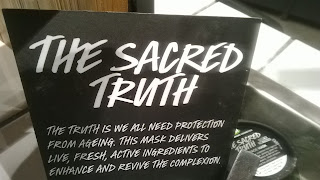I am on blogging holiday for a while - till mid-January-ish - unless the world blows up, which is slightly more likely since You Know Who (USA) and You Know Who (Russia) reignited the arms race.
Thank you for reading and commenting.
2017 will be a big year, in my view. Even bigger than 2016 has turned out to be!
My final wisdom for the year, especially pertinent on Christmas Day, courtesy of something my son Tweeted a while back:
Knowledge is knowing that tomato is a fruit, wisdom is not putting it in the fruit salad!
Boxing Day Postscript:
At the Midnight Service at St Barnabas Fendalton I preached a sermon more or less according to the following text. (My actual text had a few mores scribbled words than this version, but I have lost that!)
"Isaiah 9:2-7; Titus 2:11-14; Luke 2:1-14
It is not a very happy Christmas this year.
This year we are acutely aware that people in places such as Aleppo are
in an especially unhappy situation. But closer to home we also find people in
difficult situations illustrated by long queues of people outside the Auckland
City Mission.
Isaiah knew about the threat of evil and oppression which stalks
humanity. We heard his description of the situation using words such as “yoke,”
“bar”, “rod,” and “boots.”
This year we have felt the rod of oppression and the trampling boots of
the oppressors across our world and we end the year feeling next year could be
worse rather than better.
It is not a very happy Christmas this year.
Yet here we are singing about light and life, greeting one another with
“Merry Christmas,” and hearing readings about glad tidings of joy for all.
What is up with that?
What did Isaiah see in the midst of his dark day? He foresaw a child being
born, a child full of hope and promise, serving Israel with powerful love
rather than the love of power.
At the time Isaiah almost certainly thought this foresight was about the
next royal baby to be born.
But for centuries no royal baby born in Israel quite matched the job
description of the Prince of Peace given in that passage.
Then, and we know the story well, a baby was born, with royal lineage,
in a very obscure way, placed in a feeding trough with no spare room anywhere
else in a Bethlehem hostel.
And as people got to know that baby, as the baby grew to be a man, what
Isaiah saw was determined to have come to pass.
Jesus was the Wonderful Counsellor or, as Paul wrote to Titus, “our
great God and Saviour.”
All that is good. We celebrate the birth of Jesus, who is the
manifestation of our great God.
But there is this tiny challenge. When Christmas is not a happy
Christmas for many people, has the promise of Isaiah’s prophecy been fulfilled?
Isaiah did not only foresee the coming of the Christ child, he foresaw a
better world, talking of “endless peace” and the establishment of a just
kingdom.
I think this challenge has to be met. We crave integrity. We want
promises to match reality.
That is why Trump won and Britain is leaving the EU.
Voters in those places are tired of reality not matching politicians’ promises.
The shepherds give us a clue as to why we do not yet see Isaiah’s vision
fulfilled. When told that Jesus is good news for the world they go to him.
Ever since some people, like the shepherds, have followed Jesus. But
many have ignored Jesus, some have shunned him, a few have even gone further
and persecuted his followers.
Even our beloved Press today [24 December 2016] has an editorial
relegating Jesus to the sidelines and giving thanks for Santa Claus!
Isaiah’s vision will be fulfilled when we run towards Jesus rather than
away from him. When we pay him homage, like the shepherds, rather than toss him
to one side.
It is not a very happy Christmas this year. That is a challenge. At the
least it is a challenge that we might help people discover or rediscover Jesus,
the only way to endless peace and a just world.
Will we find our way to Jesus, like the shepherds?"


